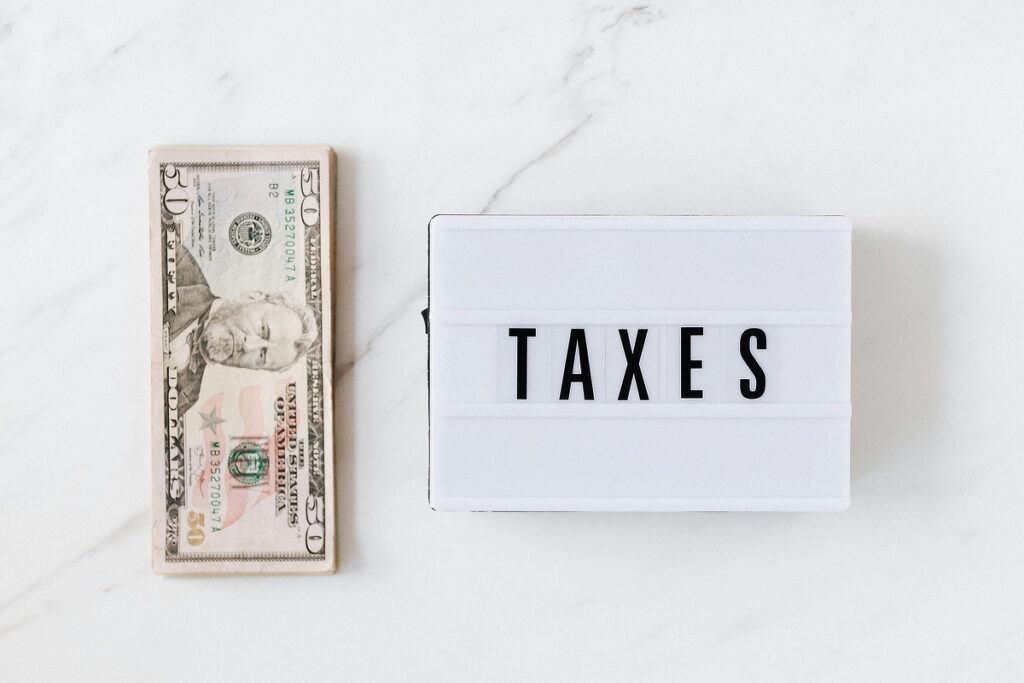Last Updated on 3 months by Victoria
Disclaimer: I’m not a lawyer or accountant, and this is not legal or accounting advice.
Time to open your spreadsheets, and dig up receipts – tax season is here!
Filing your short term rental taxes for the first time can be daunting. The first year we rented out our home while we traveled I spent hours upon hours scouring the internet for information on how to report our short term rental income properly.
There is a lot of information out there, but not much about my specific situation. I wanted to read about people’s first-hand experiences on renting a home just a few weeks a year.
Now that I’ve reported my rental income a few times, I have a list of things I track so that all I have to do is plug in the numbers. This guide summarizes the information you need to track, and the rules you need to consider before filing.

Information you need to file your short term rental taxes
Once you have a system down, I promise filing is pretty straight forward! There are 3 main categories you will need to track as the year goes on.
Number days rented, listed, and personal use
One of the most important pieces of information you will need to track as an Airbnb host is the number of days you listed, rented out, and used your home for personal purposes.
Why does this matter? The ratio of days your property was available for rental to the days it was used for personal purposes determines the proportion of your expenses eligible for deductions.
The basic formula to essentially prorate deductions is:
Number of days the property was rented / Number of days the property was rented + days the property was used for personal use
Note that the denominator (number of days the property was rented + days the property was used for personal use) does not include days you listed the property, but did not get bookings. Removing listed but not rented days reduces your denominator, therefore increasing your deduction.
So if you went on vacation, listed your home 14 days, but were only able to book 10, then the 4 not rented days do not count as personal use days.
Expenses
When you rent out your home you get to offset some of that income with your expenses. Not all home expenses are eligible deductions, but anything that is related to renting out the property is. These are the expenses that are eligible for deductions:
Mortgage interest, property taxes, and insurance | If you have a mortgage, the interest portion of your monthly payment is an eligible deduction. The property taxes and insurance you pay annually are also qualifying deductions.
You don’t have to track this information on a monthly basis as you can easily access it from your mortgage provider, assuming you pay out of your escrow account. Keep in mind that this amount is only deductible proportional to the number of days you rent the house.
Utilities | You can deduct all utility costs from your short term rental income, relative to the number of days you rented your home. Utilities include water, trash service, gas (if applicable), electricity, and WiFi. Each local or private entity that provides these services will send you monthly statements so you can track these expenses.
Repairs and maintenance | Short term rental owners can deduct any repairs or maintenance from their rental income. Repairs might include resurfacing a driveway or painting.

Improvements | These include expenses that result in the betterment, adaptation, or restoration of your home. An example of an improvement is replacing the flooring, or adding square footage. Improvements are capitalized when you file, not deducted.
Supplies | You can deduct anything you buy for Airbnb in full. This doesn’t mean that any purchase for your home is applicable but if, for example, you purchase towels and sheets for your guests, these are a deductible expense.
Some of the items we find ourselves purchasing most frequently for guests include: Towels and sheets, pillows, blankets, toilet paper and paper towels, coffee, soap, shampoo and conditioner.
Advertising | We don’t market our home, but if you do choose to spend on advertising your property you could deduct this expense. It probably isn’t worth the cost if you’re renting your primary residence part time, but it’s good to be aware of the option!
Fees, Permits, and occupancy taxes | If you are using a short term rental platform like Airbnb or Vrbo, you are paying host fees. These fees are deductible expenses and you can find them in the income report the platforms give you.
Increasingly, cities require homeowners to apply for (and renew) permits to rent out their homes short term. The fees you pay to make this possible are completely deductible.
To level the playing field, many states and cities now charge short term rentals occupancy taxes. In some cases, Airbnb collects these for you. For example, in Texas Airbnb collects and pays the 6% tax the state requires.
Often, Airbnb does not collect city taxes for you. Austin, Texas implemented an 11% tax on short term rental income, which you have to pay to the city directly on a quarterly basis. Don’t forget to track how much you pay in taxes and fees, since these are fully deductible!
TIP: You have to save all your receipts! They are not required for filing, but you will need to show where these numbers came from if you are ever audited.
Income
Tracking your income is a bit more straightforward. You can download income reports from your short term rental platform of choice. If you rent out your home independently, make sure you’re tracking your income somewhere – which includes your nightly rate, plus any cleaning and pet fees. If a guest ever reimburses you for damaging anything in your homes, this will also be income.
Other points to consider
While the following aren’t items you need to track, you will need to determine if your income is passive or nonpassive and if it is Qualified Business Income (QBI) to file.
If in doubt, I recommend you either check with an accountant, or verify with your tax software provider. So far, I have been paying for upgraded tax software with audit protection. I consult their team when I have had questions with no issues to date!

Passive vs non-Passive income
When you file for taxes you will need to determine whether your income is passive (Schedule E) or non-passive (Schedule C). Income is considered passive if you are minimally involved in the rental, and don’t provide any regular services.
The benefit of passive income is that you do not have to pay self employment taxes on the profit.
Your income is considered non-passive if you rent out your home for stays of 7 days on average. You also need to be materially involved in the management and operations of your rental, or provide additional services to guests.
While you would have to pay self-employment taxes, you would also qualify for a wider range of deductions related to the services you offer and coordinate for your guests.
Qualified Business Income (QBI) Deduction
If your rental activity qualifies as a trade or business, you may be eligible for the QBI deduction. QBI allows you to deduct up to 20% of your qualified business income.
Qualified property is tangible property that is subject to depreciation. While passive rentals don’t qualify, many short term rentals don’t fall into the category. To be eligible for safe harbor QBI you have to meet the following requirements:
- Keep records of your income and expenses,
- Keep reports of services provided, maintenance and management activities,
- 250 hours of rental service
The IRS has detailed instructions related to QBI (and a flow chart!) that might illuminate this topic further.
Final Thoughts
Figuring out your short term rental taxes is complicated! While you should always consult a professional, I hope this post will help you organize your information throughout the year to be ready for filing season!
Related Reading
How to Turn your Home into a Short Term Rental (and Travel More!)
10 Ways to Travel More without Earning More
Victoria is an Austin-based travel content creator passionate about encouraging her readers to step outside of their comfort zone and step in to a life of adventure. She is the founder of the travel blog Nomad No Problem.
